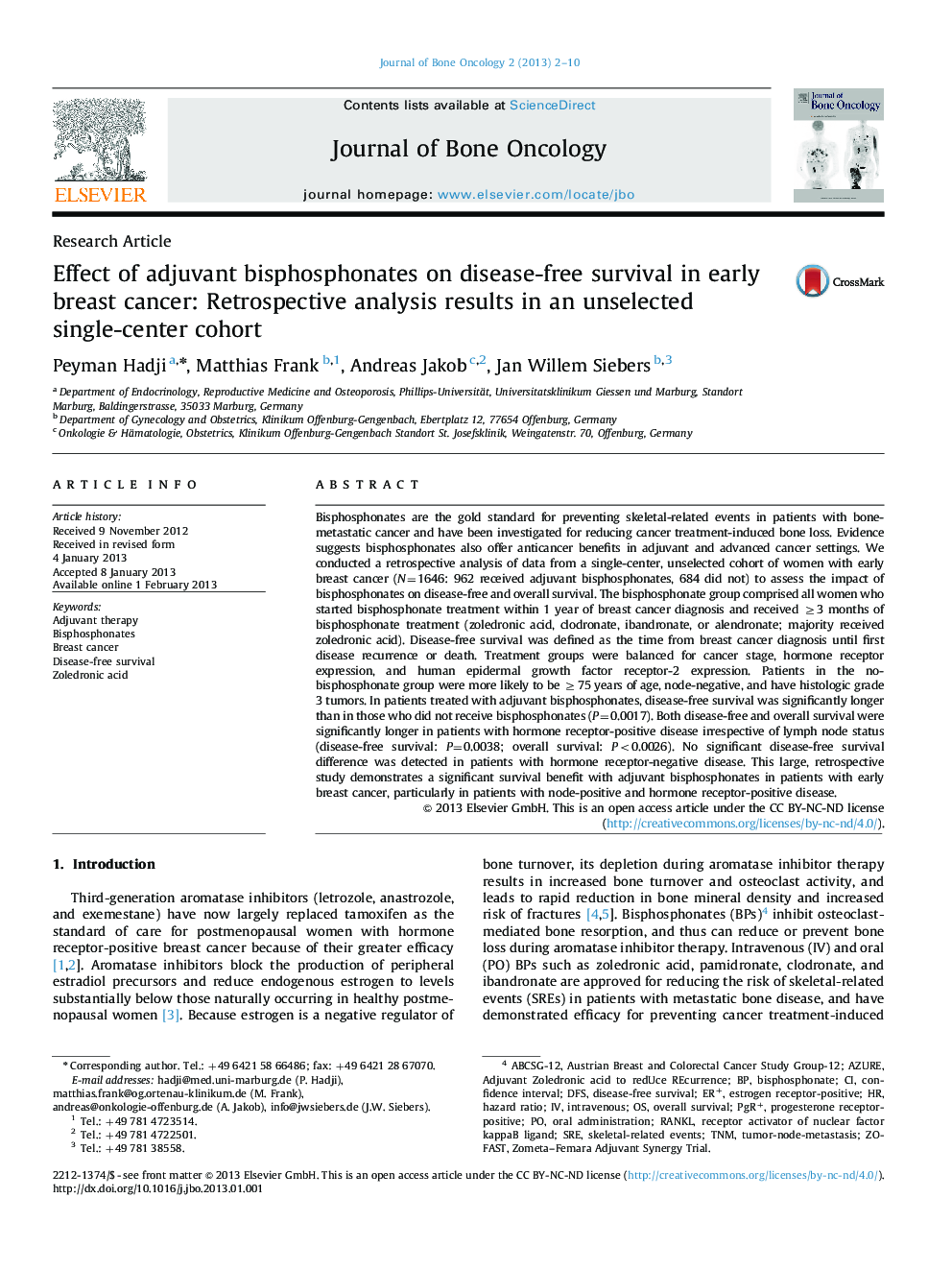| Article ID | Journal | Published Year | Pages | File Type |
|---|---|---|---|---|
| 2136189 | Journal of Bone Oncology | 2013 | 9 Pages |
Bisphosphonates are the gold standard for preventing skeletal-related events in patients with bone-metastatic cancer and have been investigated for reducing cancer treatment-induced bone loss. Evidence suggests bisphosphonates also offer anticancer benefits in adjuvant and advanced cancer settings. We conducted a retrospective analysis of data from a single-center, unselected cohort of women with early breast cancer (N=1646: 962 received adjuvant bisphosphonates, 684 did not) to assess the impact of bisphosphonates on disease-free and overall survival. The bisphosphonate group comprised all women who started bisphosphonate treatment within 1 year of breast cancer diagnosis and received ≥3 months of bisphosphonate treatment (zoledronic acid, clodronate, ibandronate, or alendronate; majority received zoledronic acid). Disease-free survival was defined as the time from breast cancer diagnosis until first disease recurrence or death. Treatment groups were balanced for cancer stage, hormone receptor expression, and human epidermal growth factor receptor-2 expression. Patients in the no-bisphosphonate group were more likely to be ≥75 years of age, node-negative, and have histologic grade 3 tumors. In patients treated with adjuvant bisphosphonates, disease-free survival was significantly longer than in those who did not receive bisphosphonates (P=0.0017). Both disease-free and overall survival were significantly longer in patients with hormone receptor-positive disease irrespective of lymph node status (disease-free survival: P=0.0038; overall survival: P<0.0026). No significant disease-free survival difference was detected in patients with hormone receptor-negative disease. This large, retrospective study demonstrates a significant survival benefit with adjuvant bisphosphonates in patients with early breast cancer, particularly in patients with node-positive and hormone receptor-positive disease.
► Adjuvant bisphosphonate (BP) use increased from 10% in 1998 to >90% in 2008. ► This analysis supports clinical evidence of adjuvant BP benefit in breast cancer. ► Adjuvant BPs were associated with prolonged disease-free survival and OS vs. no BPs. ► Adjuvant BP clinical benefits were more pronounced in HR+ tumors (vs. HR−). ► Adjuvant BP clinical benefits were also pronounced with more lymph node involvement.
